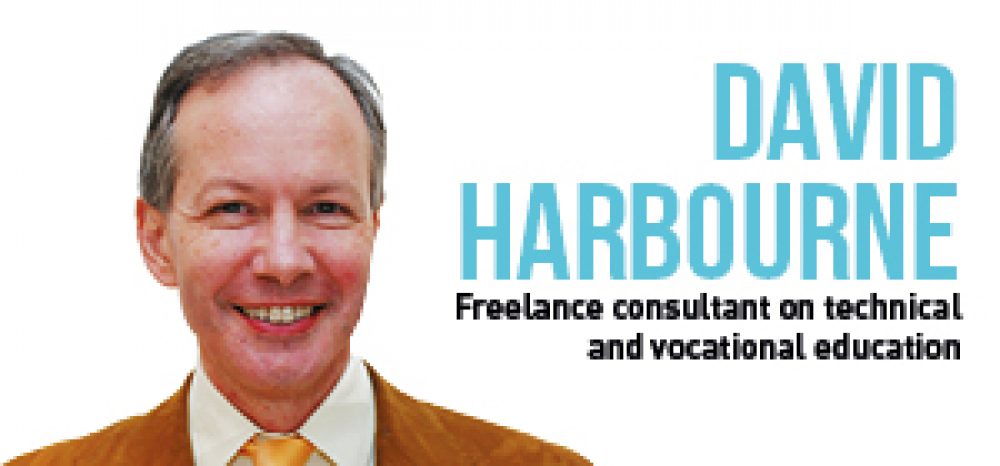Learning by doing should be valued equally with academic learning, says David Harbourne. But vocational education first must meet the highest possible standards
Education must provide a wide range of knowledge, skills and attributes that are best represented by a spread of qualifications of equal status and value. There are, after all, many paths to success.
Vocational qualifications (VQs) – a crucial offering in our education system – therefore must meet the highest possible standards. If not, we’ll never see any parity of esteem between vocational qualifications and more traditional, academic routes.
The Department for Education’s recent proposals to reform VQs for 16 to 19-year-olds highlights a process for deciding which qualifications should count in future performance tables, without any mention (quite rightly) of numbers or targets.
Unfortunately, the accompanying press release wasn’t quite so encouraging, opting for the addition of some seemingly random statistics. This provided the media with an easy headline about the scrapping of ‘Mickey Mouse courses’, a line that they fell for, hook, line and sinker.
The press release talked about potentially culling thousands of level three qualifications from post-16 performance tables, giving the impression that the majority of current vocational courses are poor quality. This simply isn’t the case.
For one thing, the best current qualifications are taken by tens of thousands of young people every year with great success – albeit often without the recognition they so richly deserve.
These qualifications are more than likely to continue under the new rules subject, in some cases, to minor tweaks.
The opportunity to study technical subjects should be offered to all students, not just a few”
But other qualifications, taken by very few people, remain extremely valuable. For example, we train few farriers each year – only three colleges in England currently offer farriery – but there is no question of dropping such specialist courses or abandoning these specialist qualifications.
To add some meat to the press release, there was an additional announcement about the development of new engineering and construction qualifications to replace principal learning qualifications.
The development of high-quality qualifications is, of course, something that we fully endorse. But it was rather secondhand news, the announcement having been made by the Chancellor during a visit to Rolls-Royce a few weeks ago.
But as many a politician will tell you, if you’ve got good news it’s best to announce it as many times as you can.
The real story is the plan for clear and consistent standards for judging current and future qualifications.
We welcome this wholeheartedly it sends out a clear message that the government is willing to listen to views on how vocational learning can play an important role in education and how we can ensure young people leave school with the specific skills that employers need.
We are in the midst of a skills shortage in the UK with many employers saying that they struggle to fill positions.
As our Six Steps for Change policy document sets out (www.edge.co.uk/six-steps-for-change), we feel strongly that the opportunity to study technical subjects should be offered to all students, not just a few.
Learning by doing should be valued equally with academic learning, and all technical, practical and vocational education should be high quality and, of course, valued by employers.
Encouragingly, the Department for Education’s plans give us confidence that we can work together to establish a new qualification system that will last the test of time. All young people, whatever their abilities and interests, should leave the system with the ambition and necessary skills to succeed – as well as with the skills that the economy needs.
David Harbourne, director of policy and research at the Edge Foundation









Your thoughts